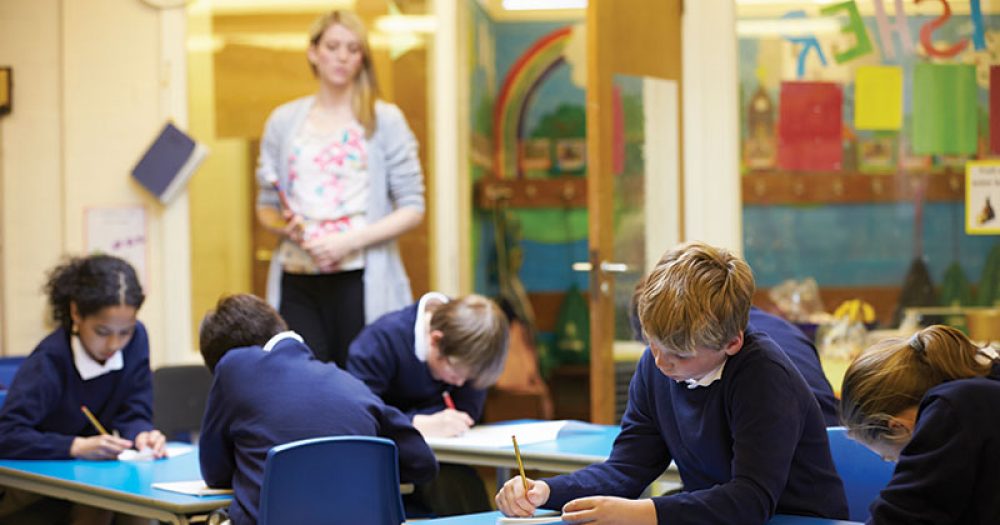The House of Commons education committee has published a key report on primary assessments and the chaos that ensued when they changed last year.
They raked over the issues, but – more importantly – also made made some recommendations.
Here is what the committee wants the government to do…
1. Give thorough information about SATs changes at least a year in advance
The committee schools should be given thorough information about changes to the design and delivery of assessments at least a year before they will be implemented.
MPs also say the government should carefully consider the impact of setting thresholds for schools with short lead in times, and that expected standards should be raised over a much longer time period than currently planned in order to give schools a chance to adjust to new expectations.
2. Make the KS2 SPAG test non-statutory
MPs say the evidence they received did not support the focus on “specific grammatical techniques” to improve the overall quality of writing. The committee says the spelling, punctuation and grammar test for 11-year-olds should still available for schools for internal monitoring, but should not be a statutory requirement.
The committee says the spelling, punctuation and grammar test for 11-year-olds should be available to schools for internal monitoring, but not be a statutory requirement.
3. Change published data in order to ‘lower the stakes’ of tests
MPs want changes to what is reported in each school’s public performance tables to reduce issues that occur when using data from a small number of pupils.
They recommend publishing a rolling three year average of key stage 2 results instead of results from a single cohort. Yearly cohort level data would be available for school internal use only.
4. Review Ofsted’s reliance on data
Ofsted should consider if inspectors rely too heavily on data, and pilot inspections where data is only looked at after a visit.
5. Do ANOTHER review of the Standards and Testing Agency
MPs are unconvinced the Standards and Testing Agency will meet the recommendations set out in a recent review of its functions, and want a further review of the agency following this year’s SATs to assess how well it has done.
The committee says there is also a “lack of clarity” over the responsibilities of ministers, the STA and Ofqual in the national curriculum assessment development process.
6. Review Ofqual’s role in regulating SATs
This will ascertain whether the regulator should have greater oversight of standardised tests in schools. (At the minute the Standards and Testing Agency is largely in charge).
The committee also wants an independent panel of experts and teachers to review the development process for tests to “improve confidence amongst school leaders and teachers”.
7. Publish plans to improve testing for pupils
The STA should “do more to explain the development process of national curriculum assessments to schools and ensure that teachers have confidence that they are involved from an appropriate stage”. MPs want the DfE and STA to publish plans to “improve the test experience for pupils, particularly for reading”.
8. Government to provide ‘adequate resources’ for training on new assessments
MPs say the government should provide “adequate resource” for training of teachers and leaders on new assessments, including assessing pupils who fall under national curriculum level.
9. Advise schools on dodgy commercial assessment systems
Many schools are using paid-for examinations systems to supplement SATs or internal testing. At present, there is little information about their reliability or cost-effectiveness, which the committee would like to see changed.
10. Get Ofsted to report on breadth and balance of curriculum in EVERY primary
Ofsted should say whether a schools if offering a broad and balanced curriculum in each report, the committee says, and reports should “specifically include science as a core subject alongside English and maths, as well as a range of other areas of the curriculum and extra-curricular activities”.
11. Evaluate the ‘harmful consequences’ of introducing any new baseline tests for reception pupils
This should involve early years experts and practitioners, and look at impacts on pupil wellbeing and teaching and learning.
12. Evaluate the reliability of teacher assessment
The committee wants the government to carry out a “thorough evaluation of the reliability of teacher assessment judgments” and reconsider whether it is “appropriate to use these judgments for accountability purposes”.
13. Get schools to support a ‘culture of wellbeing’
The government should assess the impact of changes to curriculum and standards on teacher and pupil wellbeing, and publish plans to avoid negative consequences.



The Select Committee has recognised the damage done by SATs including a squeezed curriculum, teaching to the test and ‘unnecessary stress for pupils’ (https://www.publications.parliament.uk/pa/cm201617/cmselect/cmeduc/682/68208.htm#_idTextAnchor012). So why not go the whole way and recommend scrapping these tests? They serve no educational value.